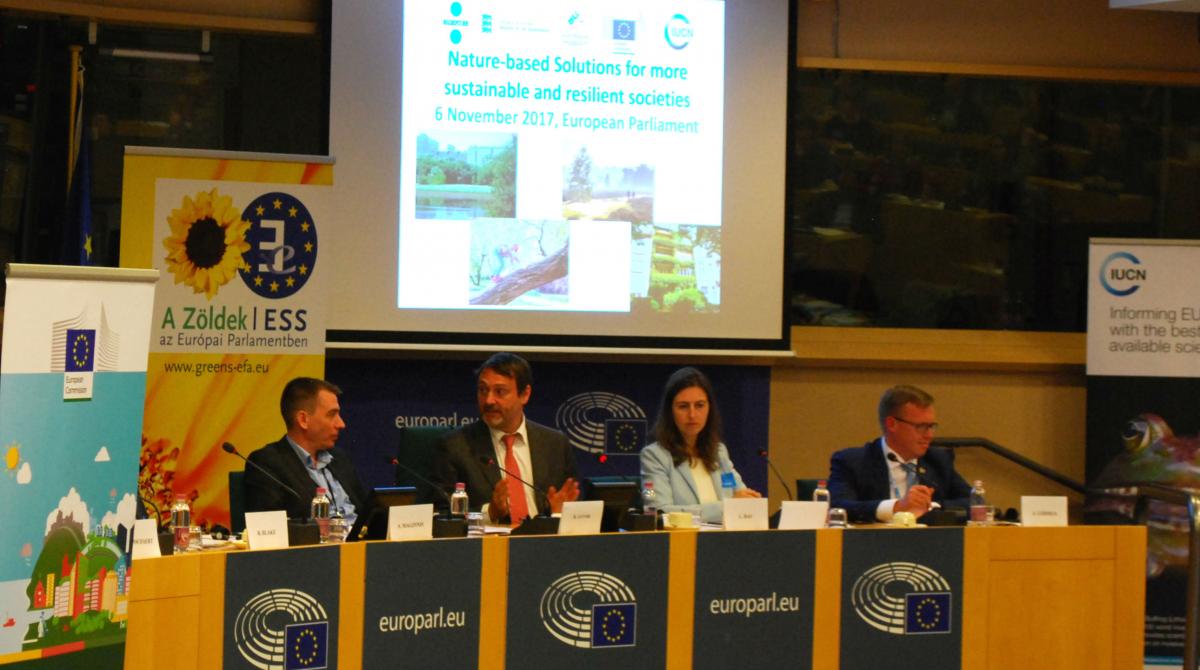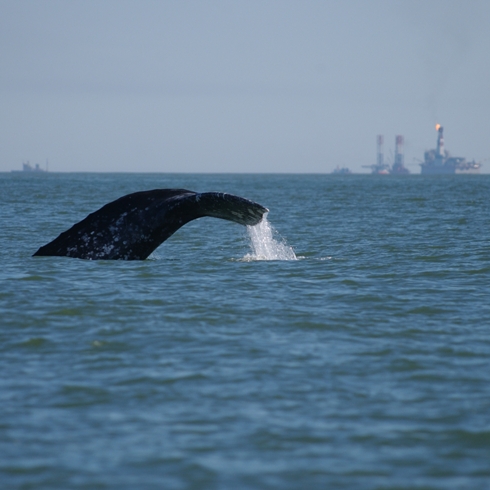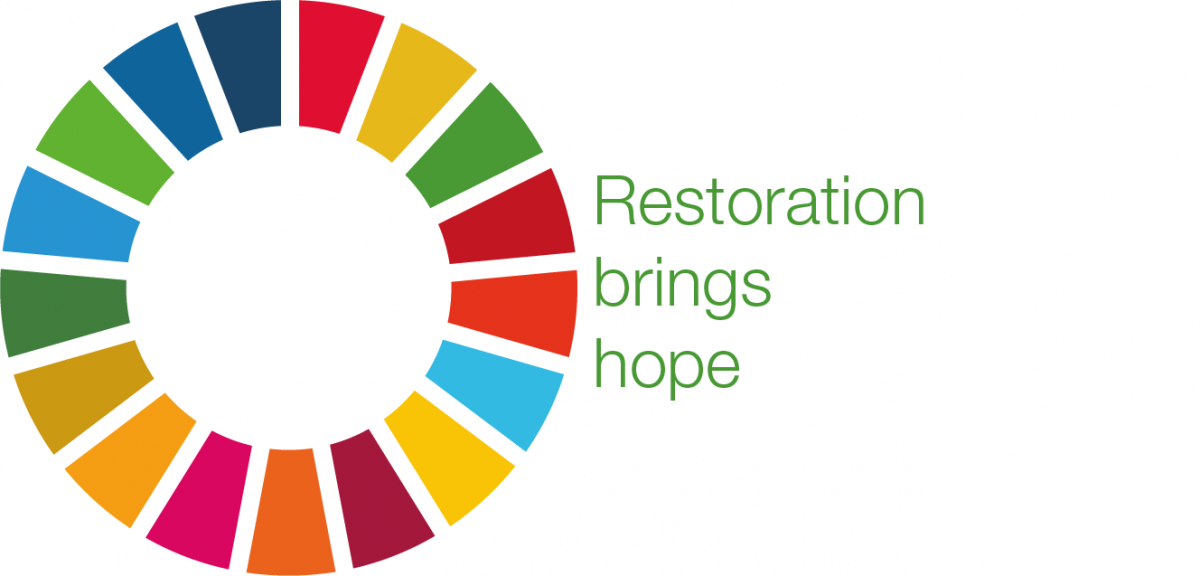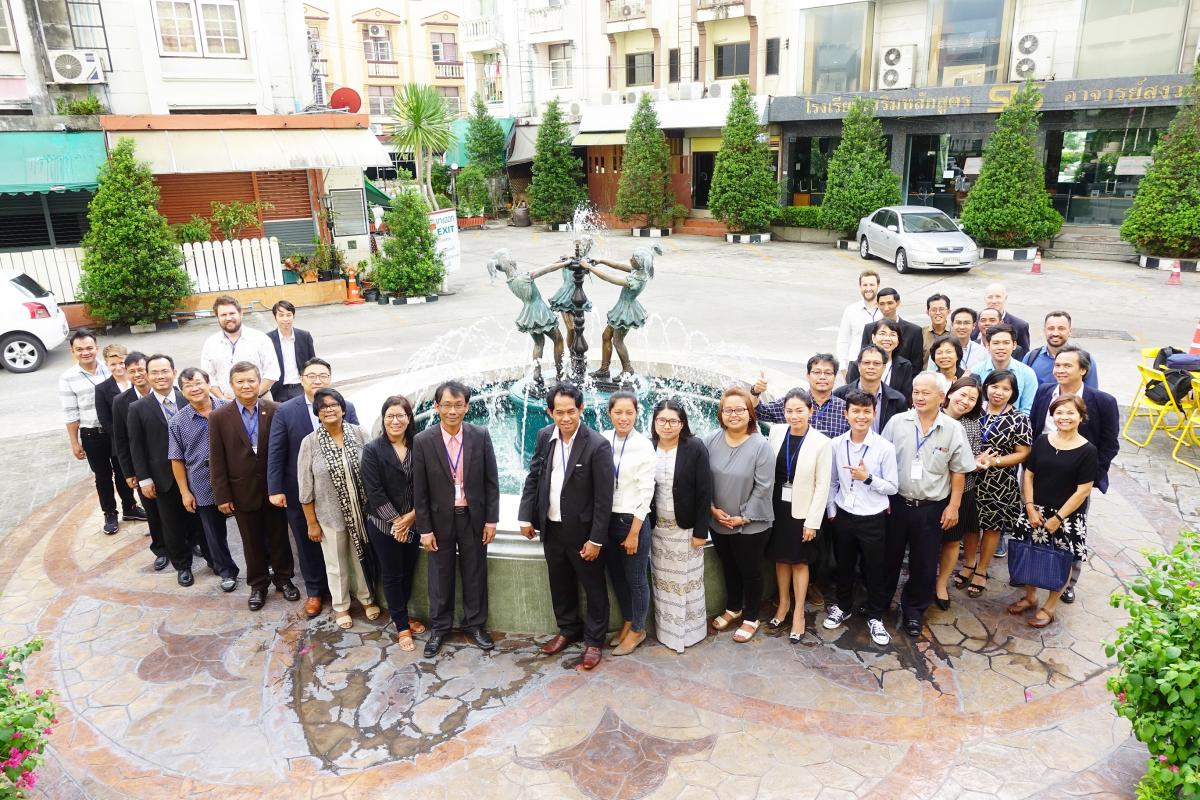Innovating with nature to create positive impacts for society
On 6 November 2017, Benedek Jávor, Member of the European Parliament, and the IUCN European Regional Office hosted an event on Nature-based Solutions for more sustainable and resilient societies, in partnership with the Estonian EU Presidency and the European Commission’s Directorate General for Research and Innovation. The event exhibited opportunities for innovating with nature and creating new partnerships for action on Nature-based Solutions in Europe.

Photo: IUCN
Nature-based Solutions (NBS) are cost-effective solutions for climate change adaptation, disaster risk reduction, health, and other societal challenges which also benefit biodiversity. They can involve a range of actions, from protecting pristine nature, to managing modified ecosystems, and even creating new ones such as green roofs. Luc Bas, Director of the IUCN European Regional Office emphasised in his opening words that they are inspiring solutions with a range of co-benefits, but knowledge gaps and challenges remain, such as policy coherence and scaling up by making a robust case for investment in NBS. According to Benedek Jávor other important aspects in implementing NBS are the participation of local stakeholders in their development, taking into account natural land management practices and avoiding harmful subsidies.
Ado Lõhmus, Deputy Director of the Estonian Ministry of Environment, presented the outcomes of the flagship EU Presidency conference ‘Nature-based Solutions from innovation to common use’, highlighting that Europe can become a leader on NBS, with effective communication, collaboration and concrete business models based on sound science and exchange of best practices and case studies.
Stewart Maginnis, Global Director of IUCN’s Nature-based Solutions Group, presented examples of NBS, such as using restored salt marshes to absorb wave energy and reduce coastal flooding in the UK and ecosystem restoration in the Chinese Loess Plateau, which lead to multiple benefits, such as increased income and carbon sequestration. He also referred to IUCN’s work to develop an NBS standard to support decision-makers and investors to assess NBS risk and viability.
Tom Bosschaert, Founder and Director of Except Integrated Sustainability, showed with a number of inspiring examples how cooperation across sectors and disciplines boosts innovation. The San Francisco Transbay redevelopment project created the world’s largest rooftop park, a true ecological entity, providing spatial quality, health benefits, economic value and biodiversity. The Polydome is a revolutionary approach to greenhouse agriculture, offering commercial scale, net-zero-impact food production.
“NBS will only be effective, if we are willing to address the root cause of unsustainability,” said Leen Gorissen, Founder of Studio Transitio. “That means going beyond the patterns, the structures and most of all, the mental models that keep the unsustainable system in place to shape systemic innovation. It is essential to reconnect with nature and move from degenerative to regenerative design and create positive impacts over time.”
Business can show leadership in adapting the way decisions are made internally by incorporating the value of nature, according to Peter White, Chief Operating Officer of the World Business Council for Sustainable Development. He described how DOW is using poplar trees to clean contaminated groundwater in the Netherlands – a solution that was considerably cheaper than technological methods. Companies that value natural capital are better at managing risks and can seize opportunities for cost-effective solutions.
In her concluding remarks, Birgit de Boissezon, Head of the Sustainable Management of Natural Resources unit in the European Commission, Directorate General for Research and Innovation, listed five action points: 1) mainstreaming NBS across policy areas and policy levels; 2) creating an NBS community of innovators and practitioners; 3) developing a comprehensive and robust NBS data, assessment and knowledge base; 4) move from pilot to scale through NBS demonstration projects, facilitating long-term investments and 5) fostering international cooperation.
NBS is established and the EU Horizon 2020 programme is forging strong partnerships to transfer Europe’s knowledge, but is still far from reaching its potential. Sustained investment in NBS will be based on recognition and practical application of Natural Capital, policy coherence, as well as collaboration across sectors and communities.
For more information, please contact Chantal van Ham, EU Programme Manager Nature-based Solutions, IUCN European Regional Office (Chantal.vanham@iucn.org).
Links
Conference ‘Nature-based Solutions – From innovation to common use
Video Friends of the Earth Power of Nature
Except Integrated Sustainability
World Business Council for Sustainable Development
European Commission, DG Research and Innovation: Nature-based Solutions
Documents
IUCN Report: Nature-based solutions to address global societal challenges
Nature for health and equity Institute for European Environmental Policy



